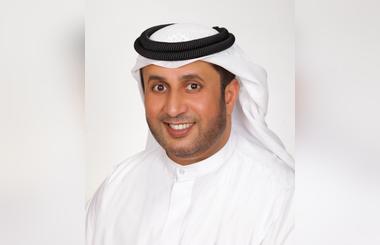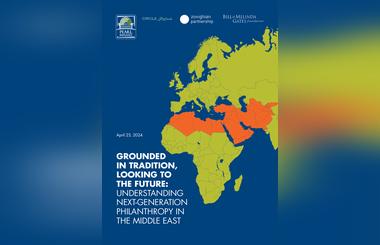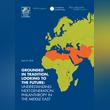
- ID Number 24628
- Aug 08, 2023
- 202
Cross-Culture Arabic Cook Book Comes On The Boil At ADIBF
Abu Dhabi International Book Fair (ADIBF) spurred cook book innovation this weekend whenTareq Taylor the Swedish/Palestinian/English author, celebrity TV chef and star of BBC Lifestyles popular Nordic Cookery series met, for the first time - fellow Palestinian celebrity TV-chef and author, UAE-based Palestinian/Canadian Suzanne Husseini, known for her cooking show Sohbe Taibe on the regional TV-channel Fatafeet.
The two quickly shared stories of their expatriate childhood and it wasnt long before a co-operation project began to simmer away.
Taylor, born to a Palestinian father and Swedish/British mother, spent a couple of years in Jerusalem as a young child until in 1973 when his parents decided to emigrate to his mothers native Sweden, due to the then highly volatile situation in Palestine.
Husseini, with parents both from Nablus, West Bank, faced the same situation when her father made the visionary and courageous decision to uproot the family from their homeland and immigrate to Canada in 1967.
The years 1967 and 1973 are moments we as Palestinian never forget. These are moments that had a direct impact on both Tareq and my life respectively our families were forced to leave our home countries to survive. But we Palestinians - though forced from our homeland - settle in new countries and adopt new customs, but in our hearts we are still Palestinian. And a very important aspect of our retaining our connection to our homeland is our traditional foods, said Husseini.
Husseini shared stories of growing up in Canada where her mother would cook traditional foods with hard-to-get ingredients that relatives would bring from Palestine. My aunts would bring zaatar and molokhia from Palestine, because in Canada at that time there were no stores that sold Arabic foods or ingredients. Her mother would prepare traditional Arabic foods such as falafel and shawarmas for her school lunches. Kids would tease her for her strange foods, but she was too young to fully understand and take it to heart. Her mother would have her invite her friends over for play-dates, and put on big feasts with her home cooked Arabic food. Before long, the school kids would start asking to sample her Arabic lunches. Food is in the end what connected me to people, and made them accept and embrace me. So since age six, food has been a bridge to other people and cultures to me. My story is one that resonates with so many people who have grown up outside of their home country.
The story rang true to Taylor, who exclaimed: thats the story of my life!
The chefs went on to discuss Arabic cuisine, and how there are regional specialties from east to west yet all connected through one culture.
Tareq commented: Theres a different sense of pride in food in Arabic culture which is why I never play around with the traditional recipes. But if I do mess it up, the Palestinian side of my family graciously excuse it based on my ethnic mix. Ive tried my best to pick up tips from my Palestinian step-mum, who is an amazing cook. When Id ask her how shed prepared a delicious dish, shed secretively respond just salt and pepper.
Best known for his Nordic cookery hes the star of BBC Lifestyles hit Nordic Cookery programme- Tareq featured selected Arabic recipes in the first of his five Swedish language cook books. I want to make Arabic food accessible to Swedes, and as such usually focus on casseroles such as Maklouba, which means upside down. Its prepared in reverse with the meat on the bottom, and then turned over to be served with the meat on top. Everybody loves it, its definitely comfort food.
Theres always going to be Palestinian influences in my food, because Palestinian food is about love for food. This is correct for many cultures, but theres a special relationship between food and people in Arabic countries.
To which Suzanne agreed: I feel like Im listening to myself. I agree with Tareq one hundred percent. Palestinian food is part of that whole mosaic of Arabic food that Im very proud to share. And its very connected with the ingredients of the land.
Suzanne is known for her modern takes on traditional dishes. I like to take traditional Palestinian and Arabic dishes, and give them a modern spin, to re-introduce them, particularly to the younger generations that may be more exposed to a range of international foods than their own traditional foods.
When asked if the two would consider joining forces to create a cook book together, the answer was a resounding ja!- Swedish for yes. Tareq commented: I have a simple answer YES! - and I would go with whatever Suzanne says. An equally excited Suzanne responded: How do you say yes in Swedish? Ja?- then JA! That would be exciting. I think it would be easy for us to cook up a book together. Were both Palestinians, living abroad, and we have similar backgrounds and can draw from our experiences and share something with people.
Tareq Taylor is at ADIBF as part of Swedens role at the fairs 2014 Guest of Honour.
ADIBF runs at Abu Dhabi National Exhibition Centre (ADNEC) until Monday night (May 5) and is presented by Abu Dhabi Tourism & Culture Authority.

Mazagan Beach & Golf Resort Invites Guests to Enjo...
- Apr 24, 2024

UAE teacher named regional winner of the 2024 Camb...
- Apr 24, 2024

Offering virtual clinic services and home visitati...
- Apr 24, 2024












